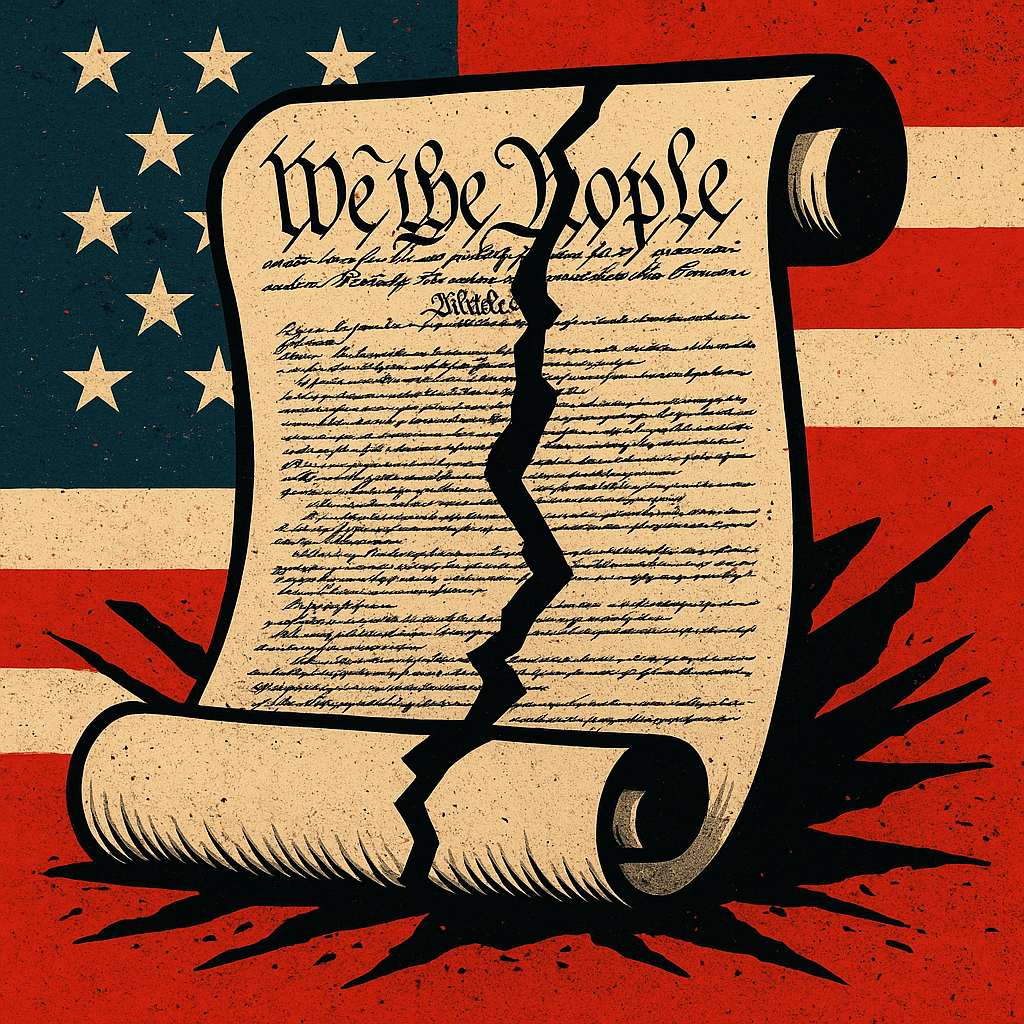In the rush of today’s 24/7 media cycle and political conflict, something profound — and dangerous — is happening beneath the surface. It’s not just another news story, another election, another culture war battle. It’s the slow, steady erosion of the constitutional norms that once acted as the bedrock of American stability.
This isn’t about one political party or one moment. It’s about a pattern that’s been accelerating for decades — and is now reaching a breaking point.
Universal Injunctions: A New Weapon Against Executive Power
One of the clearest examples of this erosion is the rise of universal injunctions. Once exceedingly rare, these sweeping judicial orders now happen with alarming regularity. Nearly half of all universal injunctions in U.S. history were issued during the Trump administration alone.
A universal injunction allows a single district court judge to issue a ruling that binds not just the parties in a case, but the entire nation. This was never intended by the Constitution. The judiciary was meant to settle disputes between specific parties — not to govern the executive branch.
Yet today, it is common for one judge in a single jurisdiction to block national policies, even those directly authorized by Congress. Instead of acting as a shield for citizens, the law is increasingly used as a political weapon, tearing apart the separation of powers the Constitution was designed to protect.
Immigration and the Ghost Representation Crisis
Another alarming example is the manipulation of congressional representation through immigration policies. Congressional seats are apportioned based on total population — not citizenship. When undocumented immigrants are counted in the census, it inflates the population numbers in certain states, giving them additional congressional seats and Electoral College votes.
This means that states with large populations of non-citizens gain political power, even though these individuals are not legally allowed to vote. Estimates suggest that without counting illegal immigrants, Democrats would lose around 12 congressional seats and corresponding electoral votes.
This undermines the constitutional principle of government by the consent of the governed, turning representation into a game of numbers rather than citizen legitimacy. It is not just bending the rules; it is warping the very foundation of American democracy.
Crisis Speed: How Technology Supercharges Constitutional Decay
Modern technology has accelerated the pace of political and legal conflict beyond anything the Founders could have imagined. In the 19th century, it could take months for a law passed in Washington to be known — and enforced — across the country. Today, news spreads instantly. A new policy is enacted in the morning; by afternoon, it faces national legal challenges.
This immediacy leaves no time for local discretion, adaptation, or reflection. Laws and executive actions, once intended to be carefully considered and locally applied, are now imposed or resisted at the speed of outrage.
Constitutional governance relies on patience, process, and restraint. In an age of instant reaction, those qualities are disappearing.
Liberty Is a Peacetime Luxury
Liberty thrives in times of peace and cultural unity. In times of war, terror, or existential threat, however, the behavior of populations changes drastically. In such moments, people instinctively seek strong leadership, protection, and security — often at the cost of their own freedoms.
Following the attacks of 9/11, Americans surrendered vast swaths of constitutional rights in the name of fighting terror. Patriot Act surveillance, indefinite detentions, and erosion of due process were all accepted in the moment. The nation survived the attack — but some parts of the Constitution never fully recovered.
This is the tragic reality: liberty requires vigilance, but it also requires a degree of safety and societal trust. Without those, the temptation to abandon constitutional principles for immediate security becomes overwhelming.
Fighting Back Without Destroying the Republic
There is a paradox facing those who seek to defend the Constitution today. If defenders of liberty respond to lawlessness with lawlessness, or to constitutional violations with their own abuses, they risk completing the destruction their opponents began.
The challenge is to fight with strength — but within the principles the Constitution demands. Winning at the cost of the Republic is no victory at all.
Conclusion: A Call to Vigilance
The erosion of constitutional norms is no longer hypothetical. It is happening now — in the courts, in immigration policy, in the structure of elections, and in the accelerating speed of political conflict.
The solution is not surrender, nor is it reckless retaliation. It is to recommit to the hard, patient work of constitutional governance: local action, principled resistance, strategic pressure, and cultural renewal.
If Americans hope to preserve liberty for future generations, the answer lies not in abandoning the Constitution — but in embodying it, even when doing so is hardest.
Because if the Constitution falls, there won’t be anything left worth saving.



